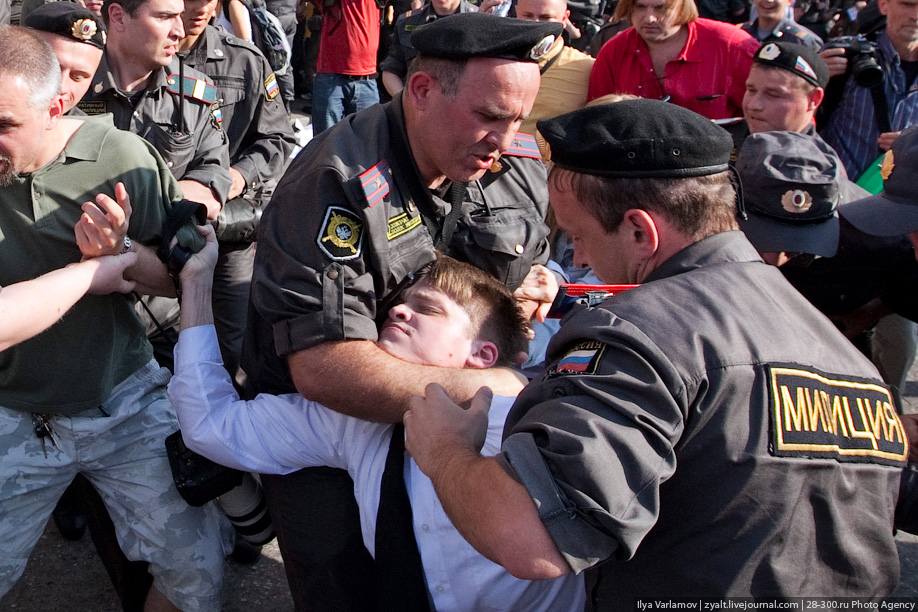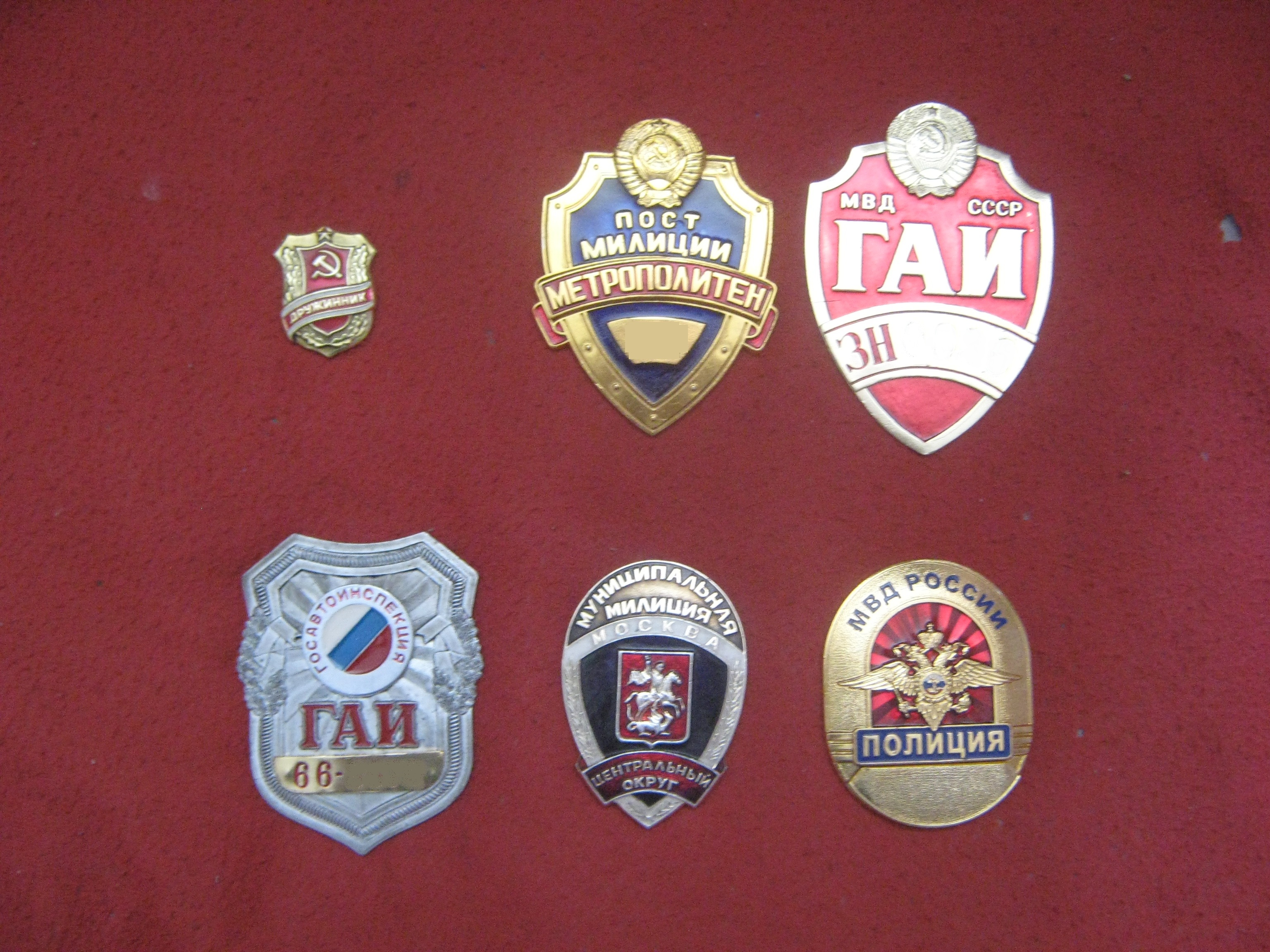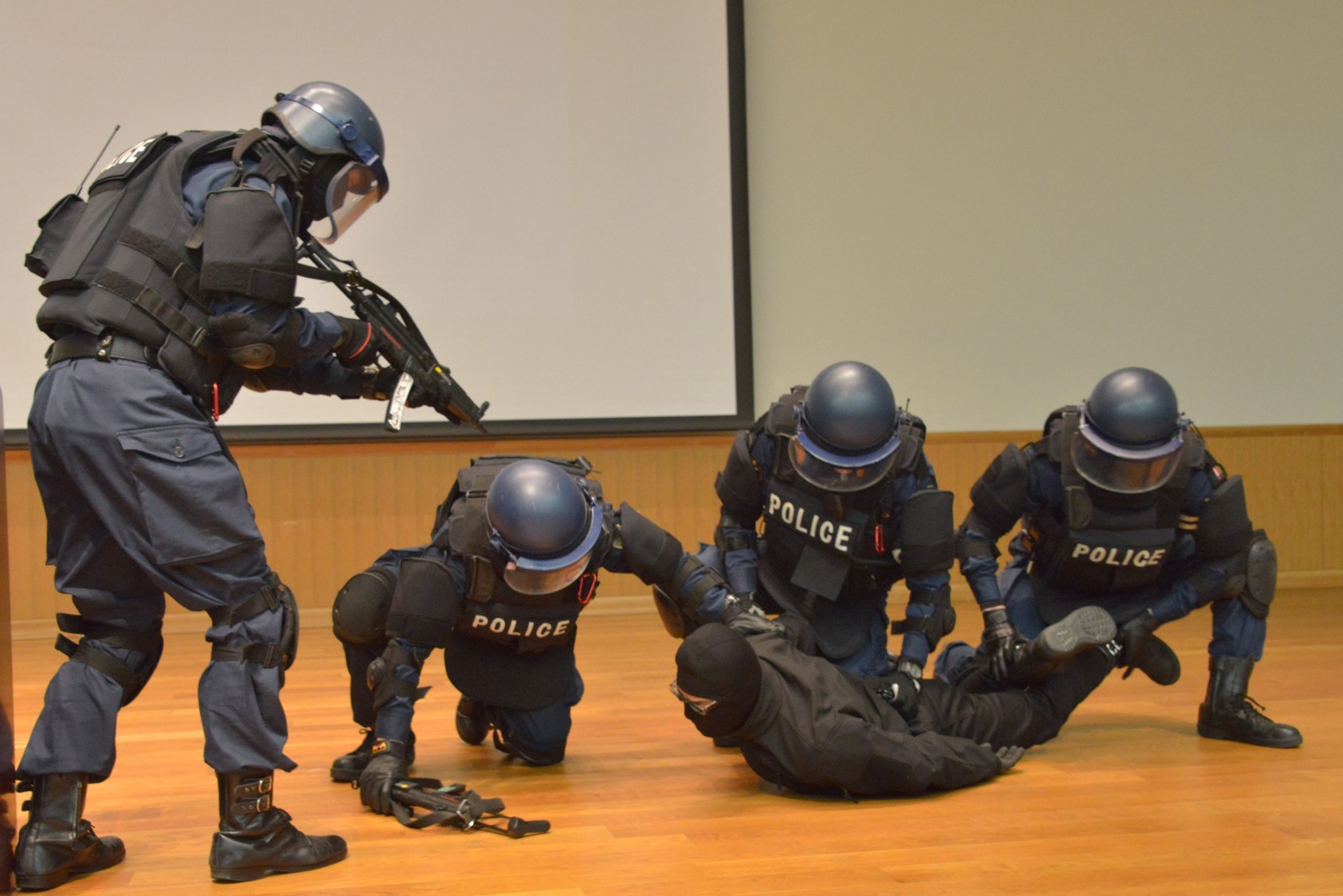|
Omon (other)
OMON is a system of military special police units within the Armed Forces of Russia. It previously operated within the structures of the Soviet and Russian Ministries of Internal Affairs (MVD). Originating as the special forces unit of the Soviet Militsiya in 1988, it has played major roles in several armed conflicts during and following the 1991 dissolution of the Soviet Union. OMON is much larger and better known than SOBR, another special-police branch of the National Guard of Russia. In modern contexts, OMON serves as a riot police group, or as a gendarmerie-like paramilitary force. OMON units also exist in Belarus, Kazakhstan, Tajikistan, and other post-Soviet states. However, some post-Soviet units have changed names and acronyms. Russian speakers commonly refer to OMON officers as ''omonovtsy'' (; singular: omonovyets – ). On 5 April 2016 OMON became part of the newly-established National Guard of Russia, ending its years as part of the MVD. The MVD continues to op ... [...More Info...] [...Related Items...] OR: [Wikipedia] [Google] [Baidu] |
Militsiya
''Militsiya'' ( rus, милиция, 3=mʲɪˈlʲitsɨjə, 5=, ) were the police forces in the Soviet Union until 1991, in several Eastern Bloc countries (1945–1992), and in the Non-Aligned Movement, non-aligned Socialist Federal Republic of Yugoslavia, SFR Yugoslavia (1945–1992). The term ''Militsiya'' continues to be used in common and sometimes official usage in some of the individual former Soviet republics such as Belarus, Tajikistan, Uzbekistan and Kyrgyzstan, as well as in the partially recognised or unrecognised republics of Abkhazia, South Ossetia and Transnistria. In Law enforcement in Russia, Russian law enforcement, the term remained in official usage until the Russian police reform, police reform of 2011. Name and status The name ''militsiya'' as applied to police forces originates from a Russian Provisional Government decree dated April 17, 1917, and from History of Soviet Russia and the Soviet Union (1917–1927), early Soviet history: both the Provision ... [...More Info...] [...Related Items...] OR: [Wikipedia] [Google] [Baidu] |
1980 Summer Olympics
The 1980 Summer Olympics (), officially known as the Games of the XXII Olympiad () and officially branded as Moscow 1980 (), were an international multi-sport event held from 19 July to 3 August 1980 in Moscow, Soviet Union, in present-day Russia. The games were the first to be staged in an Eastern Bloc country, as well as the first Olympic Games and only Summer Olympics to be held in a Slavic languages, Slavic language-speaking country. They were also the only Summer Olympic Games to be held in a self-proclaimed communist country until the 2008 Summer Olympics held in China. These were the final Olympic Games under the International Olympic Committee, IOC Presidency of Michael Morris, 3rd Baron Killanin before he was succeeded by Juan Antonio Samaranch shortly afterward. Eighty nations were represented at the Moscow Games, the smallest number since 1956 Summer Olympics, 1956. Led by the United States, 66 countries 1980 Summer Olympics boycott, boycotted the games entirely, beca ... [...More Info...] [...Related Items...] OR: [Wikipedia] [Google] [Baidu] |
Police Tactical Unit
A police tactical unit (PTU) is a specialized police unit trained and equipped to handle situations that are beyond the capabilities of ordinary law enforcement units because of the level of violence (or risk of violence) involved. The tasks of a police tactical unit may include executing dangerous search warrants and arrest warrants for dangerous persons; arrest without warrant, arresting or neutralizing dangerous or mental disorder, mentally ill armed persons; and intervening in high-risk situations such as Shootout, shootouts, Police standoff, standoffs, hostage, hostage-takings, and terrorism, terrorist incidents. Definition Police tactical units are dedicated units composed of personnel selected and trained in tactical skillsets to carry out the responsibilities of the unit, and in use of force, use-of-force policies, including lethal force for counterterrorism. A PTU is equipped with specialized police and military-type equipment. A PTU may have specialized combat assault ... [...More Info...] [...Related Items...] OR: [Wikipedia] [Google] [Baidu] |
Partisan (military)
A partisan is a member of a domestic irregular military force formed to oppose control of an area by a foreign power or by an army of military occupation, occupation by some kind of insurgent activity. The term can apply to the field element of resistance movements. The most common use in present parlance in several languages refers to Resistance during World War II, occupation resistance fighters during World War II, especially under the Yugoslav Partisans, Yugoslav partisan leader Josip Broz Tito. History before 1939 The initial concept of partisan warfare involved the use of militia, troops raised from the local population in a war zone (or in some cases regular forces) who would operate behind enemy front line, lines to disrupt communications, seize posts or villages as forward-operating bases, ambush convoys, impose war taxes or contributions, raid logistical stockpiles, and compel enemy forces to disperse and protect their base of operations. George Satterfield has ana ... [...More Info...] [...Related Items...] OR: [Wikipedia] [Google] [Baidu] |
Alexander Kolchak
Admiral Alexander Vasilyevich Kolchak (; – 7 February 1920) was a Russian navy officer and polar explorer who led the White movement in the Russian Civil War. As he assumed the title of Supreme Ruler of Russia in 1918, Kolchak headed a military dictatorship, which ruled over the territory of the former Russian Empire controlled by the Whites. He was a proponent of Russian nationalism and militarism, while he opposed democracy as a principle which he believed to be tied to pacifism, internationalism, and socialism. As the principal leader of the White movement, he was one of the key architects of the White Terror. Kolchak served in the Imperial Russian Navy and fought in the Russo-Japanese War and World War I. The son of a naval artillery officer, Kolchak graduated from the Naval Cadet Corps and went on to become an accomplished oceanographer and Arctic explorer. He was involved in several expeditions to northern Russia, including the New Siberian Islands, and became ... [...More Info...] [...Related Items...] OR: [Wikipedia] [Google] [Baidu] |
Russian State (1918–1920)
The Russian State () was a White Army anti-Bolshevik state proclaimed by the Act of the Ufa State Conference of September 23, 1918 (the Constitution of the Provisional All-Russian Government), “On the formation of the all-Russian supreme power” in the name of “restoring state unity and independence of Russia” affected by the Russian Revolution, revolutionary events of 1917, the October Revolution and the signing of the treaty of Brest-Litovsk with German Empire, Germany. Ufa State Conference act The delegations from Committee of Members of the Constituent Assembly, the Provisional Siberian Government (Omsk), Provisional Siberian Government, the Provisional Regional Government of the Urals, Cossack Troops governments, governments of a number of national-state entities, several all-Russian political parties that were present at the meeting formed the Provisional All-Russian Government (the so-called “Ufa Directory”), which was headed by Nikolai Avksentiev. It was fou ... [...More Info...] [...Related Items...] OR: [Wikipedia] [Google] [Baidu] |
Militia
A militia ( ) is a military or paramilitary force that comprises civilian members, as opposed to a professional standing army of regular, full-time military personnel. Militias may be raised in times of need to support regular troops or serve as a pool of available manpower for regular forces to draw from. When acting independently, militias are generally unable to hold ground against regular forces. Militias commonly support regular troops by skirmishing, holding fortifications, or conducting irregular warfare, instead of undertaking offensive campaigns by themselves. However, militias may also engage in defense activities to protect a community, its territory, property, and laws. For example, naval militias may comprise fishermen and other civilians which are organized and sanctioned by a state to enforce its maritime boundaries. Beginning in the late 20th century, some militias (in particular officially recognized and sanctioned militias of a government) act as profe ... [...More Info...] [...Related Items...] OR: [Wikipedia] [Google] [Baidu] |
Police Of Russia
The Police of Russia () is the national Law enforcement in Russia, law enforcement agency of Russia, operating under the Russian Ministry of Internal Affairs, Ministry of Internal Affairs from . It was established on by decree of Peter the Great, and in 2011, it replaced the Militsiya (Russia), Militsiya, the former Police, police service. The Police of Russia operates according to the law "s:ru:Федеральный закон от 07.02.2011 № 3-ФЗ, On police" (Закон "о полиции"), as approved by the Federal Assembly (Russia), Federal Assembly, and subsequently Bill (law)#Approval, signed into law on February 7, 2011, by the then President of Russia, President of the Russian Federation, Dmitry Medvedev. History The system was created in order to protect public order and fight against crime in the Russian Empire. It was reorganized on March 1, 2011, under the Russian Federation, except for existing structures not related to the Ministry of Internal Affairs ... [...More Info...] [...Related Items...] OR: [Wikipedia] [Google] [Baidu] |
Post-Soviet States
The post-Soviet states, also referred to as the former Soviet Union or the former Soviet republics, are the independent sovereign states that emerged/re-emerged from the dissolution of the Soviet Union in 1991. Prior to their independence, they existed as Republics of the Soviet Union, Union Republics, which were the top-level constituents of the Soviet Union. There are 15 post-Soviet states in total: Armenia, Azerbaijan, Belarus, Estonia, Georgia (country), Georgia, Kazakhstan, Kyrgyzstan, Latvia, Lithuania, Moldova, Russia, Tajikistan, Turkmenistan, Ukraine, and Uzbekistan. Each of these countries succeeded their respective Union Republics: the Armenian Soviet Socialist Republic, Armenian SSR, the Azerbaijan Soviet Socialist Republic, Azerbaijan SSR, the Byelorussian Soviet Socialist Republic, Byelorussian SSR, the Estonian Soviet Socialist Republic, Estonian SSR, the Georgian Soviet Socialist Republic, Georgian SSR, the Kazakh Soviet Socialist Republic, Kazakh SSR, the Kirghiz ... [...More Info...] [...Related Items...] OR: [Wikipedia] [Google] [Baidu] |
Paramilitary
A paramilitary is a military that is not a part of a country's official or legitimate armed forces. The Oxford English Dictionary traces the use of the term "paramilitary" as far back as 1934. Overview Though a paramilitary is, by definition, not a military, it is usually equivalent to a light infantry or special forces in terms of strength, firepower, and organizational structure. Paramilitaries use combat-capable kit/equipment (such as Internal security vehicle, internal security/SWAT vehicles), or even actual military equipment (such as Long gun, long guns and Armoured personnel carrier, armored personnel carriers; usually military surplus resources), skills (such as battlefield medicine and bomb disposal), and tactics (such as urban warfare and close-quarters combat) that are compatible with their purpose, often combining them with skills from other relevant fields such as law enforcement, coast guard, or search and rescue. A paramilitary may fall under the command of a ... [...More Info...] [...Related Items...] OR: [Wikipedia] [Google] [Baidu] |
Gendarmerie
A gendarmerie () is a paramilitary or military force with law enforcement duties among the civilian population. The term ''gendarme'' () is derived from the medieval French expression ', which translates to " men-at-arms" (). In France and some Francophone nations, the gendarmerie is a branch of the armed forces that is responsible for internal security in parts of the territory (primarily in rural areas and small towns in the case of France), with additional duties as military police for the armed forces. It was introduced to several other Western European countries during the Napoleonic conquests. In the mid-twentieth century, a number of former French mandates and colonial possessions (such as Lebanon, Syria, the Ivory Coast and the Republic of the Congo) adopted a gendarmerie after independence. Similar forces exist in most European countries. The European Gendarmerie Force is a structure, aligned with the European Union, that facilitates joint operations. A similar ... [...More Info...] [...Related Items...] OR: [Wikipedia] [Google] [Baidu] |







